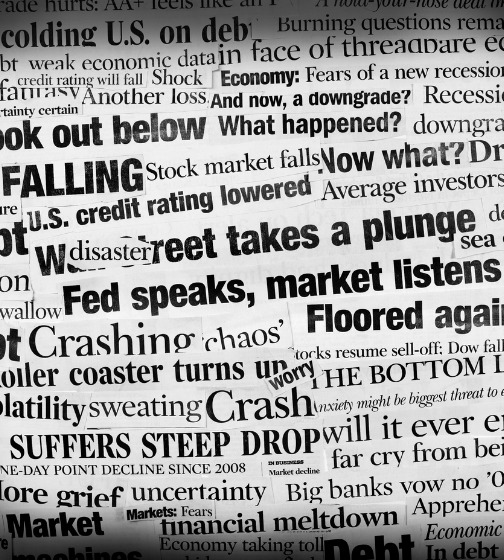Markets are likely to undergo another bout of volatility later this week after the Federal Reserve carries out another widely anticipated interest rate hike to curb inflation, BlackRock strategists say. 
What’s more, they are expecting the market to remain volatile until central banks accept that they cannot continue to raise rates without damaging economic growth and make clear which one is more important to them.
At its monetary policy meeting last month, the Fed made its most aggressive hike since 1994 when it lifted interest rate by 75 basis points. Many commentators are expecting the same this week, with some seeing a significant chance of a 1 percentage point hike – which has not happened since February 1982.
“The Fed is set to raise rates by an additional 0.75% or more this week as it scrambles to raise the fed funds rate into restrictive territory to rein in inflation. Market views on what to expect next for rates have been volatile,” the latest note from the BlackRock Investment Institute said.
“Why? Central banks think they can curb inflation and cause only a mild slowdown, whereas this is unlikely in reality, in our view. We see more volatility ahead until central banks take sides in the stark trade-off between growth and inflation they are facing.”
The Fed’s interest rate forecasts suggests it thinks it can bring inflation back to its 2% target without damaging growth, but BlackRock disagrees.
While interest rates increases can bring down inflation caused by excessively high demand, the investment house thinks they are of limited use against inflation sparked by production constraints such as supply chain blockages and labour shortages – which are the issue today.
In order to address this flavour of inflation, BlackRock believes central banks would have to risk “slamming spending down so hard it would stall the economic restart”. But the Fed and the European Central Bank still say they can engineer a ‘soft landing’, or a scenario where higher rates only cause a mild slowdown.
“We think a soft landing is unlikely. Central banks today face sharp trade-offs between growth and inflation and many have yet to acknowledge this,” its strategists said.
“The ECB limited its maneuvering room by stressing it’s only focused on inflation. This will make it harder to change course. We see a pivot later this year when a recession we flagged in early March comes knocking.
“We expect the Fed to change course only next year, when the economic effects of rate rises become clear. The market agrees. Rate projections now show the Fed cutting rates in 2023. That’s consistent with our view.”
While the market is likely to remain worried until central banks decide if tackling inflation or supporting growth is more important, BlackRock thinks that both the Fed and ECB will ultimately come down on the side of growth.
But in easing the pace of tightening to protect growth, this means inflation will likely run persistently ahead of central bank targets even if it does come off its current 40-year highs.
“Market expectations are not consistent with this. Breakeven inflation rates, a measure of expected inflation derived from bond yields, have fallen sharply in the past month. Markets appear to expect a typical slowdown, where both growth and inflation weaken,” BlackRock explained.
“This means inflation data could surprise to the upside – and cause markets to rapidly price a higher rate path once again. Result: another equities sell-off. That’s why we further reduced equities to a tactical underweight.”






